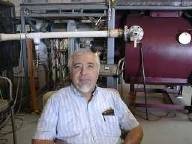
-----
fatigue life improvement by anodising or TiN coating?
i am working in RWRDC HAL designing helicopter. my question is can we improve the fatigue properties of life critical component made out of Ti6Al4V with splines by subjecting the splines to anodising? will anodising improve the surface hardness? will subjecting the splines with titanium nitride coating improve the fatigue life?this is general information for the purpose of education.thanking you
N.G.KRISHNANhindustan aeronautics limited - Bangalore .Karnataka .india
2000
Are you sure that the word 'fatigue' means the same to you as to our readers? As an engineer in the U.S.A, 'fatigue' means cyclicly applied stresses (often reversing stresses). But hardness or wear resistance seems to be the need in the component you describe; both finishes you describe will improve the surface hardness and wear resistance, but I don't know of any coatings that improve the fatigue life of an item.

Ted Mooney, P.E.
Striving to live Aloha
finishing.com - Pine Beach, New Jersey
Ted is available for instant help
or longer-term assistance.
2000
Most coatings will not increase the fatigue life, and often can decrease it. We have found that metal ion implantation does increase fatigue life of steel gears, but have not looked at titanium components.

Jim Treglio - scwineryreview.com
PVD Consultant & Wine Lover
San Diego, California
2000
2000
Dear Mr. Mooney, thank you very much indeed for your prompt reply to my query(query no 6685) on fatigue life improvement by anodising or TiN coating on Ti6Al4v machined splines. I fully agree with your definition of fatigue. The intention of the question was whether the highly loaded component life can be improved with increase in surface hardness and avoid possible nicks and notches during operation. components made out of titanium alloys have known to have catastrophically failed due to fatigue when nicks and wear marks were present..with warm regards
N.GKRISHNANRWRDC DESIGN COMPLEX HINDUSTAN AERONAUTICS LIMITED - Bangalore .Karnataka .india
Cryogenic processing will greatly increase the fatigue life of aluminum.
F. J. DiekmanStreamwood, Illinois
2000
2000
Like a lot of questions about fatigue, this one is best answered with "it depends". One needs to determine what is causing the fatigue crack. If it is due to high rotational or bending loading, such as say a leaf spring that is being bent too much, generally a coating will not help. Should the problem be traced to cracking from fretting
(common in titanium alloy components) then a coating that will reduce the fretting is certainly worth consideration.
Then you need to understand the characteristics of the coating that you are applying. A hard chromium electroplate, for example, is commonly used in industry for wear resistance. Yet it reduces fatigue life since there are cracks in the coating, and the adhesion of hard chromium plating is sufficiently strong that these cracks can propagate into the substrate material. That is why fatigue limited designs are commonly shot-peened, to gain the compressive residual stresses that combat the growth of the fatigue crack.
Anodizing of titanium is quite a different beast than anodizing of aluminum. The titanium anodized surface is soft, thin, and used almost exclusively for anti-galling purposes. If you have fretting, by all means consider it. The PVD-TiN coating is hard but thin; while I don't have experimental data, I can't imagine that it will give a fatigue debit other than due to temperature of processing. It, too, should be useful as an anti-galling, anti-fretting tool. Remember that it is line-of-sight, while the anodizing process is not.
Good Luck!

Lee Gearhart
metallurgist - E. Aurora, New York
Q, A, or Comment on THIS thread -or- Start a NEW Thread